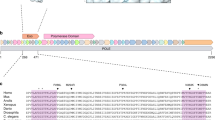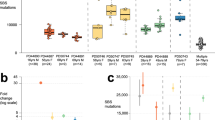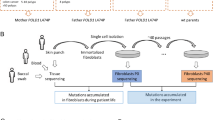Abstract
Poly(ADP-ribose)polymerase (PARP) has been implicated in DNA repair mechanisms and the associated activity shown to markedly increase after DNA damage in carcinogen-treated cells. A defective DNA repair has been associated to the aetiology of human cancers. In order to assess the potential role of this enzyme in cellular response to DNA damage by gamma-radiation, we studied the activity of PARP in patients with familial adenomatous polyposis (FAP). We compared poly(ADP-ribose)polymerase activity by the rate of incorporation of radioactivity from [3H]adenine-NAD+ into acid-insoluble material in permeabilized leucocytes from FAP patients and healthy volunteers. Concomitantly, the intracellular levels of NAD+--the substrate for the PARP--and the reduced counterpart NADH were determined using an enzymatic cycling assay 30 min after [60Co] gamma-ray cells irradiation. Our results demonstrate that a marked stimulation of PARP activity is produced upon radiation of the cells from healthy subjects but not in the FAP leucocytes, which concomitantly show a marked decrease in total NAD-/NADH content. Our observations point to a role of PARP in the repair of the gamma-radiation-induced DNA lesions through a mechanism that is impaired in the cells from FAP patients genetically predisposed to colon cancer. The differences observed in PARP activation by gamma-radiation in patients and healthy individuals could reflect the importance of PARP activity dependent on treatment with gamma-rays. The absence of this response in FAP patients would seem to suggest a possible defect in the role of PARP in radiation-induced DNA repair in this cancer-prone disease.
This is a preview of subscription content, access via your institution
Access options
Subscribe to this journal
Receive 24 print issues and online access
$259.00 per year
only $10.79 per issue
Buy this article
- Purchase on Springer Link
- Instant access to full article PDF
Prices may be subject to local taxes which are calculated during checkout
Similar content being viewed by others
Author information
Authors and Affiliations
Rights and permissions
About this article
Cite this article
Cristóvão, L., Lechner, M., Fidalgo, P. et al. Absence of stimulation of poly(ADP-ribose) polymerase activity in patients predisposed to colon cancer. Br J Cancer 77, 1628–1632 (1998). https://doi.org/10.1038/bjc.1998.266
Issue Date:
DOI: https://doi.org/10.1038/bjc.1998.266
This article is cited by
-
Patchy field defects of apoptosis resistance and dedifferentiation in flat mucosa of colon resections from colon cancer patients
Annals of Surgical Oncology (2002)
-
Functions of poly(ADP-ribose) polymerase in controlling telomere length and chromosomal stability
Nature Genetics (1999)



